Betty Lorraine DiMarzio Pirkheim Elm was born and raised in Ambridge, Pennsylvania, a little steel town hanging on to the slopes that rise up from the banks of the Ohio River, upstream from the city of Pittsburgh. She grew up not far from where her parents, August DiMarzio, Sr (known by his friends as “Gus” and to us as “PapPap”) and Anna Battistone, ran away from their families in the Ellsworth coal mines to elope in the night. Although her own parents had fought against the wishes of their parents by marrying and refusing the coal miner’s life, Betty’s options for marriage would be strictly reviewed by her father. Grandma Betty was a Daddy’s girl, hanging out with PapPap’s band singing Dixieland tunes. Her love of music and dance was almost destroyed in childhood when she was hit by a car in downtown Ambridge, suffering from amnesia and wearing casts for months. (Her childhood idol, Eleanor Powell, sent her a signed “get well soon” photograph.) While carrying a torch for high school sweethearts, Betty was introduced and engaged to an man with a degree in Electrical Engineering and a good job at the Electric Company where her father worked. Frank Pirkheim, my grandfather, became her husband and the father of her three children (my mother and two uncles). Betty worked assorted jobs while raising her children. After putting herself through beauty school, she opened “Fashion Flair” from the household basement. My mother’s yearbooks have ads from Grandma’s hair boutique, showing Betty perfecting a client’s beehive, gazing up in the mirror to admire her work.
This is one of pictures that immediately comes to mind when I think of my Grandma. I picture her in her 30s, poised over someone’s setting hair, working with pride and looking as cute as can be.
Grandma Betty was a constant in my life, particularly in my adolescent years. We moved from South Carolina the summer before 6th grade and settled in Woodstock, Virginia, with Grandma while my parents looked for a place to live in the Washington, D.C. metro area. Shortly after we moved, Grandma sold the house in Woodstock and settled a few miles away from us in Centreville. She was close enough that, in moments of desperation, I could tramp through the woods and streams to Stone Road and down to Grandma’s townhouse. Grandma was very involved through my junior high and high school years: she was a chaperone on field trips and overnight competitions, she did hair and makeup for performances, and she was always in the audience for all of my events. All of my friends knew Grandma Betty; she embraced her role as my grandma by being everyone’s grandma.
At the start of my senior year of high school, I moved in with Grandma Betty to avoid having to relocate with my military family. It was a big year of responsibility for me; Grandma and I lived more like roommates than child and caretaker. She left for work before I was up for school. Most nights, she didn’t cook dinner. We shared shopping responsibilities. I always packed my own lunch, did my own laundry, and proofread my own work. No one read my college applications or even checked in to see if I was applying; our relationship wasn’t about my academics, it was about fun and stories, dresses and music. She even got me to come along on a double date to the VFW in Manassas to go dancing with one of her boyfriend’s grandsons. Grandma delighted in all the trophies I brought home from speech competitions, helped me sew a dress to wear for Homecoming, attended every theatre event, took pictures of me on prom night, and watched my senior awards. We had the pleasure of enjoying the details of each other’s lives.
Now it is just my memory that holds those details. This August 2nd, my Grandma Betty will be 75 years old. Her father lived until just before his 97th birthday, driving daily down to the “old folks’ home” to play the organ, sing, and call bingo until the end. By all rights, Grandma should have the same longevity and in some ways she does — except, without her memories. Grandma Betty has Alzheimer’s disease.
I cannot remember the last time Grandma Betty called me by my name. Or looked at me and knew, really knew, who I was. There was a time when her recognition of me was triggered by my voice, her face suddenly changing when I spoke. But that time was long ago. I don’t call her much anymore, it’s hard for me. Not because of her limitations in words, but because it is empty of that special lift, that one-of-a-kind voice that grandmas use when they are talking to their granddaughters. She may still be here, but THAT is gone and without it, I am no longer HOLLY — her first grandchild, only daughter of her only daughter, holder of all her secrets and stories — I am just a girl that she sees and hears. Not being that to her anymore, and not having the ability to see her lavish my babies with that same specialness, is a tremendous loss. Her symptoms are consistent with what the Alzheimer’s Association describes as Stage 7, or very severe cognitive decline. There is no Stage 8.
For almost 2 years, my Uncle and Aunt have cared for Grandma Betty within their home in Carlisle, PA. While we’ve spoken, I had not seen her since before her move. Upon reports from my Aunt and Uncle, we know that Grandma is showing progression in her disease. Still, she is far from the Hospice state she was incorrectly given almost two years ago. I have been determined to bring my kids to see her, regardless of whether or not she would know them or me. I have to believe that somewhere within her she knows my children and is drawn to them; that meeting them, holding them, hearing them would in someway matter to her. Still, I didn’t go expecting anything. My expectations were that she would see them flatly, say little (maybe a “god bless that baby,” which is something she has said a lot in the past when we talk on the phone or had visited with Will), and not have any sense that they were her great-grandchildren.
But the mind works in mysterious ways. Perhaps knowledge, recognition, and response are more subtle than I had thought. Maybe good care, like the wonderful care given by my Aunt and Uncle, can be a salve to aid in little improvements.
There was no “awakening” moment, no dopamine-inspired flood of memories, no grand outpouring of action or words. But there were subtle signs of emotion that at times were so strong it took my breath away. After years of not hearing Grandma say anyone’s name, we were shocked when Will said, “Goodnight, Grandma Betty” and was answered, “Goodnight, Will” without a moment’s pause. Two years ago, regardless of how much we said his name and explained who he was, Grandma introduced Will as her “beautiful granddaughter” in one breath and in the next completely forget that he was even related to her. Although we discussed his name in length during my pregnancy and after his birth, she had never called him by name. I still cannot believe how she answered him so causally, piping up so quickly and clearly that we knew without question that her flat demeanor did not represent her state of mind. She was, and possibly is, much more alert than we are aware.
There were other moments, some too subtle to describe. Reaching her hand out to Will as he lie playing on the floor at her feet. Grasping for Kate’s ever moving foot, bringing her leg up to kiss it with big, sloppy, squeeky Grandma kisses, holding on tightly despite Kate’s wiggling. Her face changing, softening as if to smile, when holding either child. Her eyes looking right into mine and sending a message of frustration and anger so clear and loud that it rung in my ears… only to be gone a moment later, either forgotten or pushed out or lost behind what my eyes could see. Her swift, brisk, terse rocking on a rocking chair after being told that she was going to have to wait a minute before getting up to go inside. Telling me that she “like to hear what they talk about” while watching my kids play. Her voice humming along to every tune I played on the piano, sometimes breaking into a whistle or vocalizing the melody. When I played ‘Jingle Bells’ she sang some of the words. Then, when I stopped playing the piano and asked her where everyone went, she surprised me by trying to tell me — three times. She started out describing my mother (“the girl that was singing”) and faltered as the memory, words, or functionality of telling slipped away until it was gone.
All of these were small gifts, moments to be celebrated because they showed me that she was still there. She isn’t lost to me after all because I still have these moments. And that is a lot more than nothing; it is something. It taught me that just because I can’t see or hear her the way I did years ago, somewhere inside of her she is still my Grandma Betty and I am still her Holly. More than that, her amazing breakthroughs (which by all accounts were, truly, amazing) showed how much she loves and adores her great-grandchildren and how much she wants to hold them, kiss them, and cuddle them. I was very wrong to think that this trip would be a symbol or gesture that would not have full appreciation: my Grandma had a great deal to share with her great-grandchildren. She was able to show them that she loves them. We are so lucky that we had those moments together.
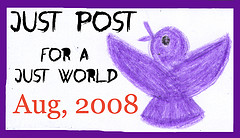
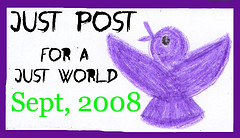
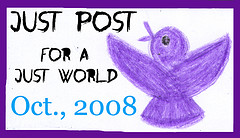


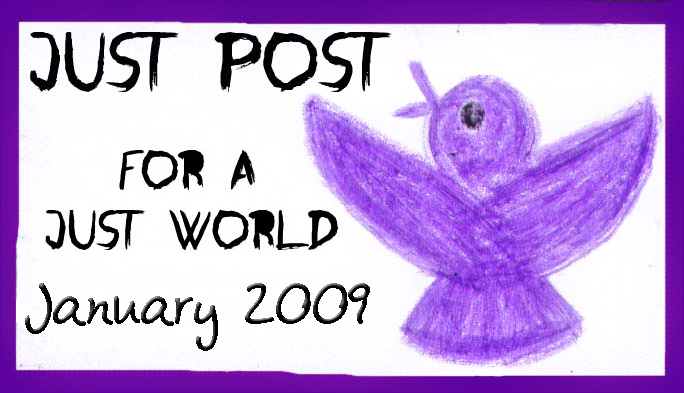
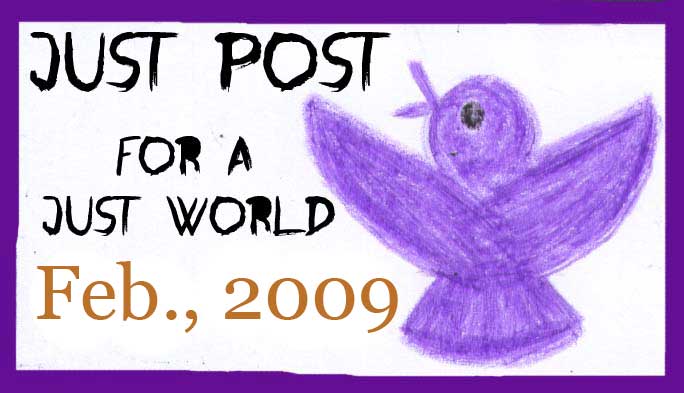








Post a Comment